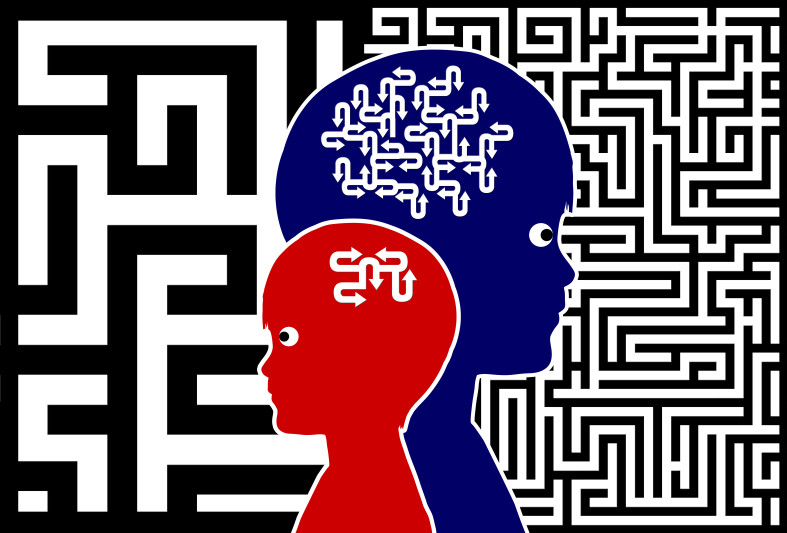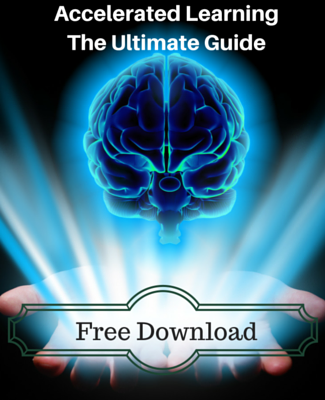II. Development of Mind/Psychology/Spirit

Key Questions:
- What are the differences between mind, psychology, and spirit?
- Why is it important to have some understanding of these topics?
- What are the benefits for me?
Benefits of Learning about the Mind/Psychology/Spirit
- Understand the path of development – where you are, and your potential from here
- Deepen self-awareness
- Accelerate your ability to learn and handle life’s challenges
- Develop a more comprehensive understanding of others, society, and history
- Know that you can continue to evolve wherever you are
- Accelerate your own development and well-being
Development of the Mind
Developmental psychology is the study of how our minds change over time. From our birth through the age of 25, these changes occur naturally as the brain changes, grows and prunes down the excess neurons. For example, we all know that children behave differently than adults. And many of these differences are based on how the brain changes throughout childhood. The brain evolved in layers. The prefrontal cortex is the top layer and was the latest addition to our cognitive computer. It doesn’t fully develop until the age of 25.
Nevertheless, the mind continues to evolve throughout our entire lifetime. Harvard adult developmental psychologist Dr. Robert Kegan has made it a major point of his life’s work to inform us that transformations of the mind do not stop once our brain reaches full maturity. The way we make meaning continues to evolve. It becomes more refined and comprehensive with each successive stage.
The major difference between the changes in childhood and those of adulthood is that development in adulthood is not guaranteed. It is indeed possible for adults’ development to slow way down if they stop learning and challenging their assumptions of how things are. So let’s explore this process and what we can do to leverage it in our favor.
Mind/Psychology/Spirit: What’s the big deal?
Will anyone ever be able to prove the existence of “spirit”?
Many people have an authentic feeling of spirituality, an actual felt sense of connection to something they feel to be greater/larger than us all. But will we ever be able to demonstrate, without a shadow of a doubt, that there is an actual spiritual essence that is different from our minds, sense of self, and psychology?
Perhaps most importantly, if it turns out that it’s impossible to prove a spiritual essence, then does that mean ideas of spirituality are meaningless or useless?
After thousands of years of religious and spiritual traditions, we have yet to prove with certainty that anything resembling a “spirit” exists in any quantitative, measurable, terms.
However, thinking of spirituality in terms of things we can physically measure is a limiting way to consider this topic, and it can cause us to miss out on valuable perspectives.
This is because things like the mind, our psychology, and spirit are subjective. Like love, fear, and trust, they cannot be held or measured but can only be felt; they can only be experienced. And words can never describe them adequately.
The question of whether the mind, psychology, love, or trust exist is, hopefully, self-evident to everyone. DeCartes famously tried to doubt the existence of everything he possibly could. And he realized that, “Cogito ergo sumo” – > “I think therefore I am.” No matter what he did, he could not be skeptical of the fact that he did exist in some way because he was always having an experience of thinking which he could not possibly deny.
And we all know that thoughts and feelings are real things even though we can’t hold them physically. We know this because they affect our actions. I have done many things because of love, because I trust someone, because I thought it was a good idea. All of these subjective traits influence what we do. In that sense they are real because they affect the physical world around us everyday.
But what about spirit….? Is it a thing like love or mind? Can we experience it directly? Is it just an idea? Is it an illusion?
A Modern Definition of Spirit: A Psychological Perspective
In my experience, I cannot see how the concept of spirit can ever be separated from the mind and psychology. We have no reason to believe that anything without a mind has ever had anything even close to a spiritual experience, or a felt experience of any kind. But that doesn’t mean that spirituality is meaningless. It seems to me that the experience of spirituality is exactly the same as the experience of being a mind, a psychological entity, that continually evolves throughout a lifetime.
Spirituality then is a combination of our evolving sense of self, the degree to which we feel connected to others and the planet, and the process of developing an increasingly comprehensive mental model of how everything is interrelated.
In this sense, the feeling of spirituality may be the identical experience of going through psychological development.
The major issues regarding claims of religion and spirituality tend to come in when spiritual traditions discuss the nature of the universe, it’s origins, what happens after death, “divine” implications for what’s “right and wrong”, and how we “ought” to live. These are all questions of philosophy and values that historically have been integrated into religious doctrines.
Many people wish to create separation between the ideas of spirituality and religion because they feel a “spiritual” sense of connection but distrust religious institutions. For others, the distrust has led them to reject any form of religion or spirituality outright. But if we refuse to even consider particular topics then we risk losing the legitimate benefits and insights that different perspectives might give us.
Do People Have Spiritual Experiences?
If I asked you if you ever felt either love or trust, you would probably say, “yes, undeniably.” But you could never prove it. There’s no way of every demonstrating with certainty that love or trust are real things that you experienced because they’re subjective. They’re feelings beyond the possibility of quantifiable verification.
Similarly, I could ask billions of people around the world if they have ever felt spirituality, and they too would say “yes, undeniably.” They too would not be able to prove their claims.
Furthermore, people who have spiritual experiences do not seem to be pretending or lying that they’ve had these experiences. They have authentically felt these just like we have all felt love or trust.
No Biological Difference
It seems to me a safe assumption that if you look at the physical body of people who have had spiritual experiences and those who have not, we would not find any consistent measurable difference. That is, all healthy functioning people have the same biological equipment. Therefore every emotion or felt experience that a spiritual person can have, a non-spiritual person can also have….
Additionally, we have all felt the range of human emotions/feelings to some extent. We certainly have not felt every emotion to the same intensity. But the natural course of life leads us to experience all the emotions and feelings available to us, at least to some degree.
*** So when a person has a spiritual experience, they must be talking about a feeling that is available to anyone who has a reasonably healthy functioning body.
That means we’ve all probably had an experience that someone who considers him/herself to be spiritual would describe as a spiritual experience. In all likelihood, people who identify themselves as “not spiritual at all” simply use different vocabulary to explain the same basic experiences.
For example, an invigorated choir in church might explain the sensation of singing in their group, “I felt so connected while letting spirit move through us.” A secular choir feeling the same energy of the group dynamic might say, “Wow, what a great experience. We were really in the zone there. We were just feeling the music and everyone was in the groove.”
Whether You Think About it or Not…
This site has no spiritual or religious agenda. But we mustn’t allow our biases and judgments to close our minds to helpful insights regardless of where we find them. For most of my life, I didn’t allow myself to even consider the possibility that the idea of spirituality could ever have any benefit. It seemed like brainwashing, crowd control, propaganda and nothing else.
When I started experiencing greater self-awareness in my early-mid 20’s, I came across the work of profoundly intelligent and hard working people whose knowledge and experience obviously engulfed my own on many fronts (See Recommended Resources Beflow). I realized how arrogant it would be to dismiss their work and insight outright just because I had a lifelong prejudice against the ideas of spirituality and religion.
***And it comes down to this: whether we choose to think about it or not, psychological development, transformations of the mind, and the feelings described as spiritual affect the lives of every human on the planet with a healthy functioning mind. That includes us.
The Dialectic: Spirituality or Non-Spirituality
There are different ways for us to relate to these topics:
- We can ignore them and assume they don’t matter.
- We can take them as ultimate truth and never doubt their validity.
- Or we can choose some middle ground: to neither dismiss them outright or accept them unquestioningly so that we can learn from their truths without falling victim to them.
My recommendation would be to consider these topics with a combination of critical thinking, an open-mind, and some healthy skepticism.
In this way, we can reap the benefits of the insights of self-reflection that have been gleaned over thousands of years of spiritual practices. But at the same time we have a healthy distance and protect ourselves from the dangers of mindless indoctrination at the expense of our own well-being.
***Recommended Resources on The Mind, Psychological Development, and Spirituality***
- Theories of Human Development – The Great Courses
- A Theory of Everything – Ken Wilber
- The Evolving Self – Dr. Robert Kegan
- The Power of Myth – Joseph Campbell
- Thinking Fast and Slow – Daniel Kahneman
Comments are closed.


